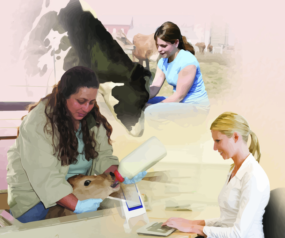As promised in our last issue, this magazine contains a review of the most prominent plans for dairy reform being promoted today. A review of more plans will follow in upcoming issues. Also, don’t forget to send us your vote online, by fax or by mail for which plan you support for dairy industry reform.
Considering that all of these plans will require federal government involvement, a review of the legislative process necessary to enact them may be helpful.
Each of these plans will need to be drafted into legislation. The Federal Milk Marketing Act of 2009 or Senate Bill 1645 is the only plan which has advanced to this point. Any legislation introduced into the U.S. Senate or House of Representatives will likely be referred to committee, or even subcommittee. Let’s use the House of Representatives as a starting point for the rest of this example. After a successful House committee review and vote, the legislation would then have to pass the entire body of the House. And at the same time companion legislation would have to be introduced in the Senate and follow the same process, with its elected officials approving the legislation. If during the process, the two bills add language that is different in any way, which is highly likely, House and Senate representatives would have to reconcile the two bills’ differences and vote again. Then the president would have to sign it before the changes would be effective.
Those who know Washington say this would need to be completed by the first of the year before this November’s elected officials are sworn in and the process would have to begin anew. Remember Congress has seven weeks of recess before the end of the year. It would not be impossible for something to get done this session, but it would be a steep climb. Most recognize the best window of opportunity for change will be the 2012 Farm Bill when agriculture gets scheduled time with Congress.
The difficulty of the political process is perhaps why President Barack Obama recently asked for Congress to merely “begin work this year” on a more high-profile issue –immigration. Big government moves slow, frustratingly so for those who want reform.
All of this said, most likely it will be some time before Congress picks up dairy reform. The best use of that time will be for our industry to educate itself and reconcile its own differences. So that when Congress does pick up the issue, they hear a united voice telling them what change should look like.
If you don’t like what you’re hearing or reading about dairy reform, now is the time to speak up, and not just to those who support your plan of choice. Tell other reform plans what concerns you about their intentions. Ask questions and demand answers. Remember that if your co-op is one of the 30 co-op members of NMPF, you’ve already endorsed the concepts in its Foundation for the Future plan. If you don’t agree with them, tell your co-op leaders now. They will be voting on final approval of the plan in June.
As you know, we welcome hearing your thoughts and opinions as well. PD

-
Walt Cooley
- Editor-in-chief
- Progressive Dairyman
- Email Walt Cooley





